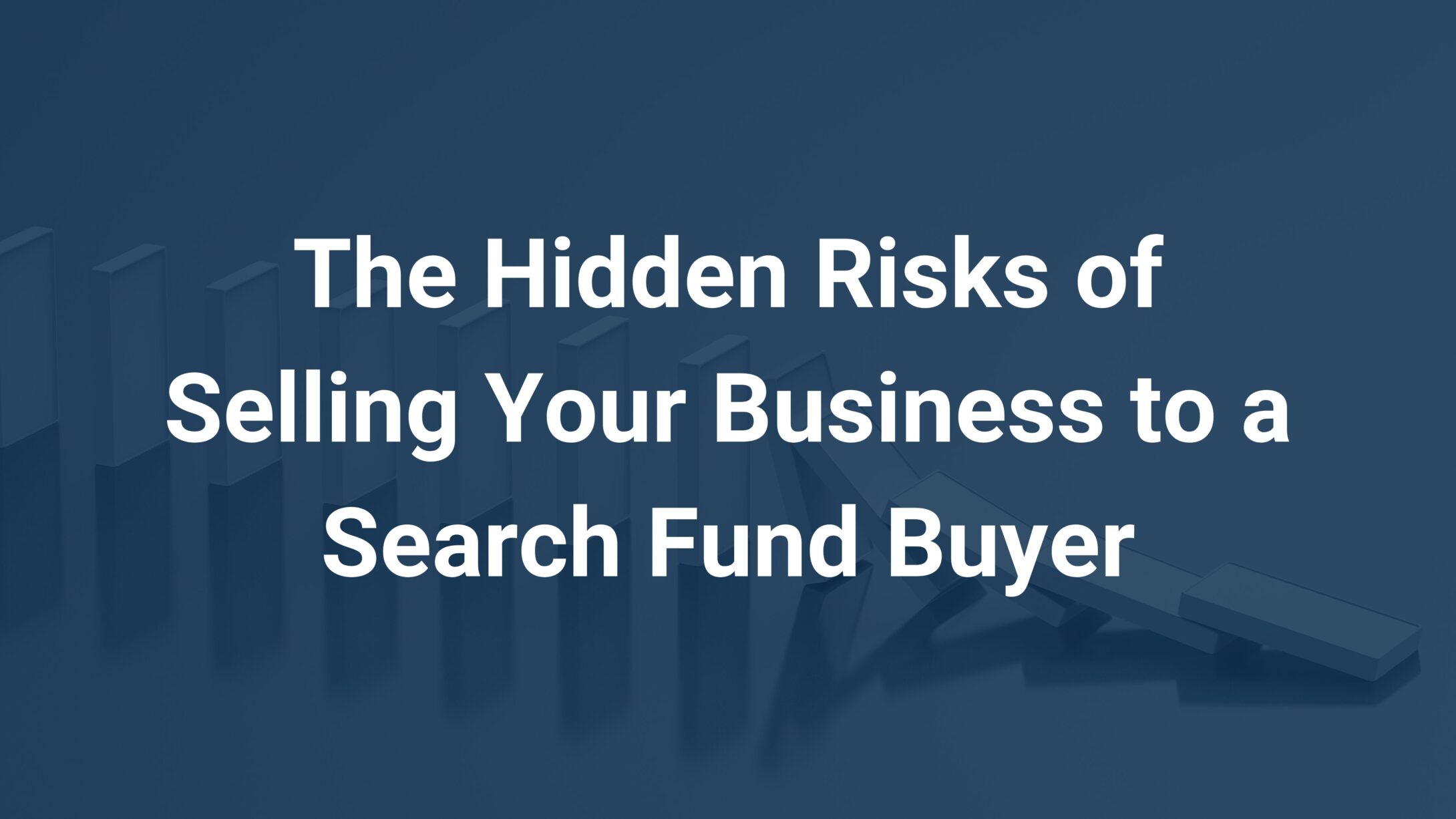
Search funds have flooded the M&A market in the US in recent years, particularly in the last several months. The 2024 Search Fund Study by Stanford Graduate School of Business states, “681 search funds have been formed in the United States and Canada since 1984.” This study also highlights a record-breaking 94 new search funds launched in the US and Canada in 2023 alone, highlighting significant recent growth in this model.
We have strong anecdotal evidence that this trend only continues to increase. In our recent deal work, our team at ACT Capital Advisors has noticed that more search funds are approaching business owners than ever before. This influx has contributed to slower deal timelines, increased uncertainty and anxiety for all parties involved, and a higher rate of transactions stalling, often due to search fund buyers’ lack of experience and committed capital.
Here are a couple of anecdotes to illustrate this:
What Exactly Are Search Funds?
Search funds are vehicles through which entrepreneurs look to buy and run a single business. There are two main types:
For more information on search funders and other types of buyers, check out this article by our Managing Director, Chris Sheppard.
The Risks of Engaging with a Search Funder to Sell Your Business
More Reliable Alternatives to Consider
Unless you’re a serial entrepreneur, selling your business is typically a one-time event. You don’t want to get it wrong, so it’s crucial to weigh your options carefully.
There are other types of buyers that often present a smoother, more certain path to close:
Each of these three buyer types tends to come with more reliable funding and experienced deal teams – two areas where search funds often fall short.
If you’re a business owner considering a sale sometime in the near future, try to avoid getting swept up in the excitement of a seemingly promising offer. Instead, engage with an experienced M&A firm that can evaluate each buyer candidate thoroughly, saving you time and grief and protecting your legacy so you can close with confidence.
ACT Capital Advisors brings four decades of experience advocating for our clients’ best interests. We bring multiple buyers to the table, creating a competitive, strategic auction process designed to maximize the value of your business in an exit and ensure deal closure. As far as we’re concerned, one buyer means no buyers. If you’re considering a sale, contact us today.
About ACT Capital Advisors
ACT Capital Advisors is a premier mergers & acquisitions firm representing lower to middle-market companies across all industries. ACT has a 40-year history of deal-making, closing 250+ transactions, and unlocking over $2.5 billion in wealth for its clients. For more information, visit https://actcapitaladvisors.com/.
"*" indicates required fields